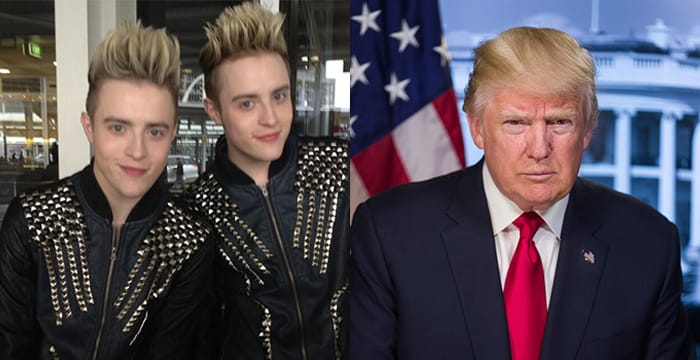Believe it or not, legal academics are among the global elite allowed to put in Peace Prize nominations

Nominations for the 2021 Nobel Peace Prize, which closed today, range from Black Lives Matter to Donald J. Trump.
It’s fairly well known that the final choice is made by a committee of Norwegian worthies (last year they chose the UN World Food Programme). But the criteria for nominating someone for that committee to consider are far broader — and likely include a law lecturer near you.
According to the rules of the Nobel Foundation, nominations can be submitted by “university professors, professors emeriti and associate professors of [among other disciplines] law”.
Qualified nominators can be from anywhere in the world and there’s no requirement that they have the slightest interest in human rights or international affairs. Even the most misanthropic land law prof can throw a name in the hat.
So who would legal academia’s finest put forward for a Nobel Peace Prize? We put the question to some top professors at leading UK law schools, and some of them even replied (we never liked you anyway, Bristol).
Disclaimer: not all of the suggestions were entirely serious, and there is no suggestion that the respondent actually put in a nomination.
In fact, plenty of law profs were unaware that they could nominate for the Peace Prize until contacted by Legal Cheek.
Sharon Cowan, professor of feminist and queer legal studies at Edinburgh Law School, said that if she’d known about this in time she’d have nominated the late David Bowie: “I’m sure if he’d been given the opportunity to chair a world peace summit, he’d have had everyone dancing in the streets together in no time”. As it happens, the 2020 prize-giving ceremony ended with a cover of Bowie’s song Heroes, so they obviously appreciate him over at Nobel HQ.
But as only “living persons” and active organisations are eligible, we’ve got to disqualify that one.
Aoife O’Donoghue, professor of international law and global governance at Durham Law School, also plumped for a musical sensation: “Jedward, who have gone from pop comedy act to serious political commentators changing the world (or at least Twitter)”.
Hello @NobelPrize we would love to be Nominated!
There seems to be a confusion with @realDonaldTrump we obviously bring a lot more volume and Peace pic.twitter.com/gnSMyDM3fj
— JEDWARD (@planetjedward) September 9, 2020
She also gave less fun but more viable suggestions, such as Ireland’s Clann Project, which probes the dark history of the country’s mother and baby homes, and the activists who successfully pitched a new constitution for Chile.
Several of the profs surveyed felt that ordinary people struggling with lockdown deserved some recognition. Professor Charlotte O’Brien of York Law School reckons the prize “should be shared by all school teachers across the world. It has become increasingly clear this year that they are what stands between us and the collapse of civilisation”. Home schooling parents everywhere sympathise.
While Fergal F. Davis, reader in public law at King’s College London, told us “Flippantly I think my wife and I deserve the prize jointly for maintaining relative peace during lockdown with three kids ranging in age from 9 to 13”.
Professor Sionaidh Douglas-Scott, anniversary chair inlaw at Queen Mary University of London, pointed out that global harmony has been thin on the ground lately but “those who produced the COVID-19 vaccines must be at the forefront”. Amen to that.
On a lighter note, Douglas-Scott suggested that the Nobel committee could usefully announce that “Donald J Trump has not been, nor ever will be, a serious candidate for the prize!”. Trump has received several separate nominations, including from eminent Australian law professor David Flint.
On the opposite end of the political spectrum, Jens M. Scherpe, professor of comparative law at the University of Cambridge, put forward voting rights activist Stacey Abrams “for her fight against voter suppression and racism” in the US state of Georgia.
Not everyone thought themselves qualified to suggested a Peace Prize winner: representatives of Trinity College Dublin, Queen’s University Belfast, UCL and Glasgow modestly declined to make even a hypothetical nomination. James Chalmers, regius professor of law at the University of Glasgow, provided a pretty compelling argument why not:
Alfred Nobel, when he decided who would have the role of awarding his prizes, assigned a Swedish institution to each of them except for the Peace Prize, which he gave to the Norwegian Parliament. As a Swede, he did not feel Swedes were the best people to decide on who deserved that particular prize. As a law professor, I feel much the same about law professors.
Still, them’s the rules — so if you’ve got a suggestion for who should win the prize in 2022, pitch it to your friendly neighbourhood law professor.


